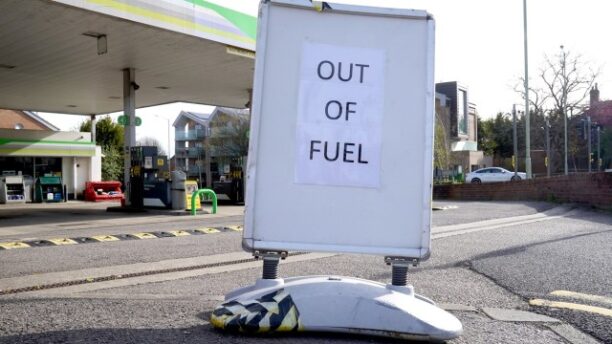Keeping Your Business Safe During Fuel Shortages

Fuel shortages can greatly disrupt the propane industry, causing added stress for businesses that rely on consistent supply. Whether it’s due to natural disasters, supply chain issues, or market fluctuations, fuel shortages can leave retailers scrambling to meet customer demand. However, there are a number of proactive steps propane businesses can take to manage the risks and avoid negative impacts.
Build Strong Supplier Relationships
The first thing you can do to protect your propane business during a fuel shortage is to establish strong relationships with reliable suppliers. Suppliers that prioritize consistent communication and timely deliveries can be key during a crisis. Regularly checking in with your suppliers about their inventory levels can give you a better understanding of what to expect in the future. Having a backup supplier or two in place can also provide additional security if your primary supplier faces disruptions.
Diversify Your Supply Chain
Relying on a single supplier or source for your propane can put your business at greater risk during shortages. If that supplier runs into trouble, you may find yourself needing a product to sell. Instead, diversify your supply chain by working with multiple suppliers from various regions or companies. This helps ensure that even if one supplier is affected, you can still keep your business running.
Plan for Seasonal Demand Changes
Certain times of the year, like winter, bring higher demand for propane. These seasonal spikes can make shortages even more challenging for propane businesses. By preparing ahead of time and stocking up when demand is lower, you can protect yourself from price increases or lack of availability when fuel is needed most. Keeping a close eye on weather patterns and market trends can also help you predict when to order extra inventory.
Invest in Storage Solutions
Having additional storage capacity can allow you to buy and store propane in advance, especially when you foresee a shortage on the horizon. By expanding your storage options, you can avoid buying at higher prices during peak times. Investing in high-quality storage tanks helps you better prepare for emergencies and protect your business.
Monitor Fuel Prices Regularly
Stay informed about fluctuating propane prices. Understanding when the market is likely to increase or decrease helps you make smarter purchasing decisions. By following market reports, talking to suppliers, and staying up-to-date with industry news, you can decide on the best times to make purchases or adjust your pricing to maintain consistent profitability.
Keep Customers Informed
During fuel shortages, maintaining clear communication with your customers is critical. If your business is affected by shortages, make sure your customers know what to expect and how you’re working to minimize the impact. Providing regular updates and setting realistic expectations about delivery times or price changes helps build trust and keeps customers loyal, even during tough times.
Develop a Crisis Management Plan
Every propane business should have a crisis management plan in place. This plan should cover how your business will handle shortages, rising prices, and potential disruptions to your supply. Having a plan in place gives you a clear roadmap when shortages happen, reducing stress and ensuring you can act quickly to address challenges.
Impact on Propane Businesses
Fuel shortages can be daunting, but they don’t have to take a negative toll on your business. By employing these strategic steps, propane retailers can better manage the risks and challenges associated with fuel shortages. Preparation, communication, and proactive measures will help keep your operations running smoothly and consistently, even in uncertain times.













